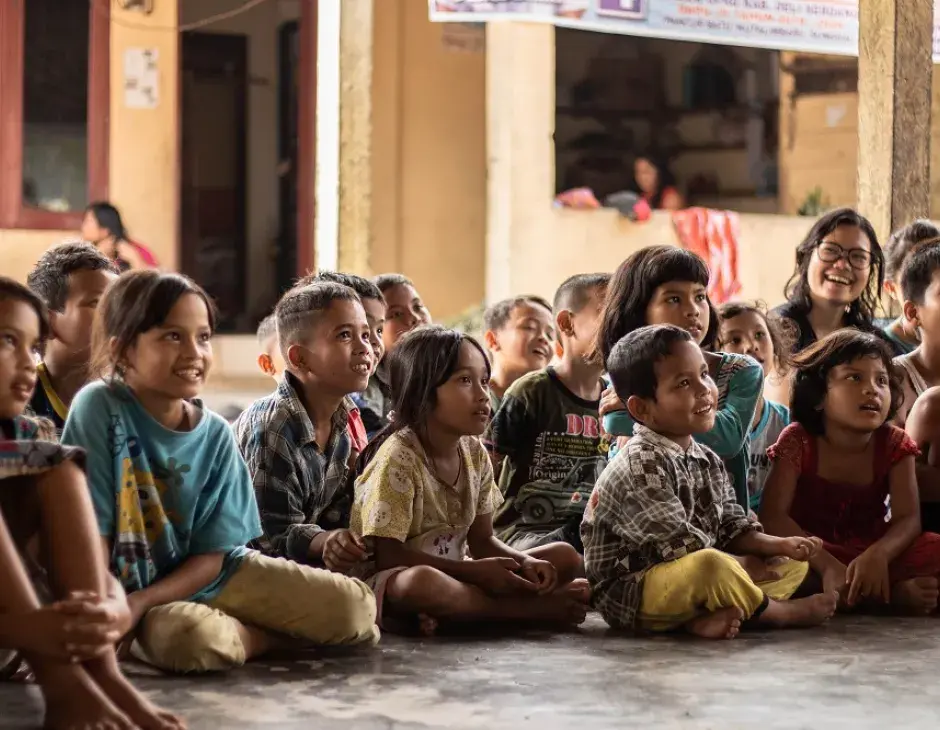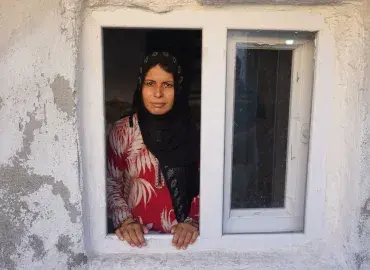Experts Call for an Urgent Response to Providing Quality Education for Displaced, Migrant and Refugee Children
Migration experts and policy leaders attending a June 24 event at the 47th Session of the Human Rights Council called for an urgent response in providing quality education for marginalised groups with an emphasis on children who are displaced, migrants and refugees.
The event was was organised by Arigatou International Geneva and sponsored by the Geneva Global Hub for Education in Emergencies, UNHCR, UNICEF, UNESCO and the International Dialogue Centre (KAICIID).
The COVID-19 pandemic, which has led to nearly 4 million deaths worldwide, has resulted in an upsurge in conflicts, political and financial insecurity and new hardships for migrants and refugees in many societies. Hate speech, stigmatisation, xenophobia and incitement to discrimination during the health crisis has created a culture of mistrust.
According to one EU-funded study, “sCAN – Specialised Cyber-Activists Network”, much of this has been fuelled by the pandemic. “As the pandemic expands, online phenomena of conspiracy theories, rumours, fake news and hateful contents connected to this global disease are growing.”
The number of child refugees around the world has grown by 26 per cent since 2000 and could fill half a million classrooms. “Inclusivity in education is a crucial aspect of both preventing and responding to crises in conflict,” said Prof. Mohammed Abu-Nimer, KAICIID Senior Adviser, who moderated the event.
Key speakers at the event included Dr. Angeliki Aroni, Head of the Unit for Integration and Support in the Special Secretariat for the Protection of Unaccompanied Minors, Ministry of Migration and Asylum, Greece; Asha Khan, UNICEF Regional Director for Europe and Central Asia and Special Coordinator for the Refugee and Migrant Response in Europe; and Maria Lucia Uribe, Executive Director, Arigatou International Geneva.
Stability for migrants and refugees
The session began with remarks on the importance of inclusive education as a child rights approach to ensure that it provides opportunities for migrants, refugees and members of host communities to learn from one another.
“Children should have access to a formal education, but we should provide them with alternative pathways to education,” said Fadi Yarak, Director General of Education at the Ministry of Education and Higher Education in Lebanon. “These alternative pathways should be flexible. We should move from formal education to different pathways where every child has the opportunity to learn and to continue in his or her life. Stability is very important, migrants and refugees have a higher rate of mobility where they should receive continuous education.”
Speakers highlighted the threats faced by young children in parts of South Asia and Europe. “Education is key for economic, social and cultural integration for refugees, migrants and host communities,” said Asha Khan, UNICEF Regional Director for Europe and Central Asia and Special Coordinator for the Refugee and Migrant Response in Europe. “At UNICEF we believe it is the most important prospect for a better life. UNICEF is also noting with concern that intolerance, xenophobia, discrimination and racism are on the rise in Europe and Central Asia. They are threatening social cohesion and impeding young girls and boys lives to both learn and thrive.”
KAICIID has played a key role in enhancing services available to those seeking refuge in Europe. The Centre’s Programme for the Social Inclusion of People Seeking Refuge in Europe seeks to improve social inclusion and improve participation in European society through interreligious and intercultural dialogue.
Launched in 2017, the programme acts as a convener for religious actors and policymakers through the Network for Dialogue. The programme also provides capacity-building to organizations working in areas of social inclusion for refugees and migrants. The Network for Dialogue’s annual flagship event, the European Policy Dialogue Forum on Refugees and Migrants, connects leading policymakers, religious actors and experts to discuss social inclusion in Europe in an attempt to yield concrete and practical policy recommendations.
Greece has become a frontline for refugee arrivals in Europe in the last decade, when more than 1 million refugees streamed through the country in 2015-2016. Dr. Angeliki Aroni, Head of the Unit for Integration and Support in the Special Secretariat for the Protection of Unaccompanied Minors, Ministry of Migration and Asylum, Greece, spoke about some of the education challenges faced by young migrant children arriving in Greece.
“Many children are illiterate, they have very little schooling and many of them have a long absence from the school environment,” she said. “We have a constant flow whether internal or external and this creates problems for schools and the education system. We have limited or non-existent prior academic records to place these students accordingly.
The importance of Article 29
Maria Lucia Uribe, Executive Director, Arigatou International Geneva spoke about the UNHCR’s Article 29, whose text includes the provision that a child’s personality, talents and mental and physical abilities should be developed to their fullest potential while developing his or her respect for human rights and fundamental freedoms.
“This is a very important framework for us and should be the framework for inclusive policies and programming. We know that diverse causes of displacement – climate change, instability and financial crises - always have the most negative impacts on the most vulnerable. Migrant and refugee children often come to host countries uprooted from what gives them a sense of normalcy, affected by violence, anxiety and stress.”
The session’s closing speaker, Dr. Rebecca Telford, Chief of Education at the UNHCR, spoke about the importance of a renewed effort to help child refugees. “The thing that really inspires me is to hear the collective aspiration that we have for refugee and migrant children that hasn’t always been guaranteed in the past - and a commitment to living the global compact on refugees, which has set out this global relationship and promise to work together to provide comprehensive support to displaced populations and to governments to ensure that access to quality education really does benefit everyone.”
Refugee and migrant women must have a seat at the policymaking table if systemic issues of social exclusion and discrimination…
The International Dialogue Centre (KAICIID) participated yesterday in an…



